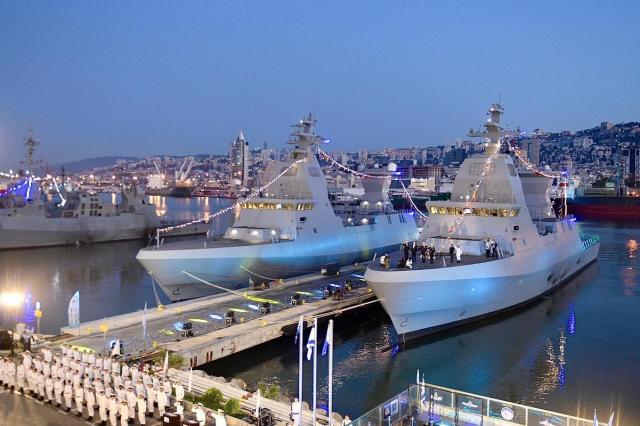We continue to review the review of the article by Avi Yager, a researcher at the International Institute for Combating Terrorism of the Interdisciplinary Center (IDC, Herzliya, Israel) on the reform of the Israel Defense Forces (IDF). In the first part , the reasons for the reforms were considered. The second and third parts are devoted to the change in the structure of the ground forces caused by the transition from traditional wars to confrontation with non-State actors. The fourth part considered the progress of reforming the IDF Air Force. In this passage, the author drew attention to the Israeli Navy.
Israel Defense Forces Navy
Geographically, Israel is surrounded by hostile States and territories, and is washed by the waters of the Mediterranean Sea. The country has maritime borders with Egypt, Jordan, southern Lebanon controlled by Hezbollah, and the Hamas-controlled Gaza Strip. With a small population and limited natural resources, Israel has always faced the problem of ensuring its own existence and, consequently, has depended on imports across the sea.
In fact, over the past years, 98% of imported goods have been imported into Israel through the Mediterranean and Red Seas. Since more than 80% of the country's population lives on its 197-kilometer coastline, this area is particularly vulnerable to attacks. Israel's critical infrastructure facilities – power plants, ports, military installations, communication channels and desalination plants - are located near or along the country's seashore. It is obvious that in these conditions, the protection of trade routes, territorial waters and the coastline of Israel are the most important tasks of the national Naval forces. Israel's dependence on maritime imports makes keeping the sea lanes open especially important in wartime.
The Israeli Navy was formed to fight the Soviet-backed Navies of Egypt and Syria, which the Israeli leadership considered as the main maritime threat. To this end, the Israeli Navy has purchased destroyers, missile boats, universal patrol boats and two submarines (submarines). Israel Military Industries has developed a naval missile system "Gabriel" (Gabriel), specially designed to defeat enemy surface ships.
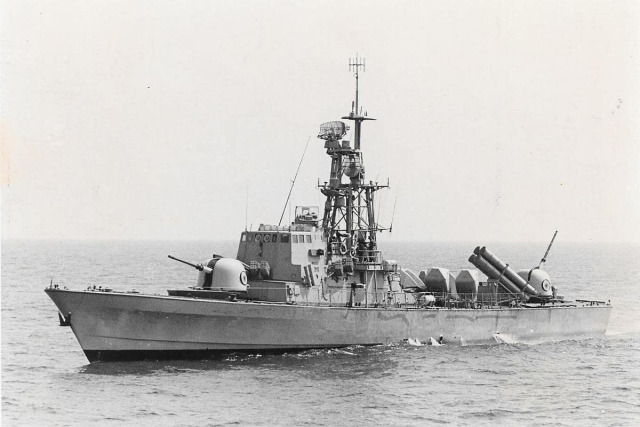
Participant in the 1973 Yom Kippur War, a missile boat of the Saar-2 type of the AOI Navy During the 1973 Yom Kippur War, the Israeli Navy defeated the Egyptian and Syrian fleets.
Israel had 14 missile boats against 24 missile boats from Egypt and Syria combined. Shortly before the war, the Israeli Navy decommissioned two old submarines, leaving a significant gap compared to the 12 existing submarines of the Egyptian Navy. Nevertheless, the Israeli Navy destroyed or captured 24 enemy ships, while receiving only minimal damage and loss of personnel.
Throughout the war, Israeli sailors managed to ensure the security of their ports and keep most of the trade routes in the Mediterranean open, which ensured a continuous flow of energy and other goods into the country. Most importantly, the Israel Defense Forces Navy drove hostile ships out of the country's territorial waters and ensured that no coastal Israeli city was attacked from the sea during the conflict.
After the 1973 war, a decrease in the likelihood of confrontation at sea with rival navies and an increase in tension with non-State opponents forced the IDF command to devote more resources to solving maritime security tasks. The main goal was to prevent attacks on Israeli citizens. The Israeli Navy withdrew all destroyers and large missile boats from the fleet and began purchasing patrol, small and medium missile boats. These changes proved costly.
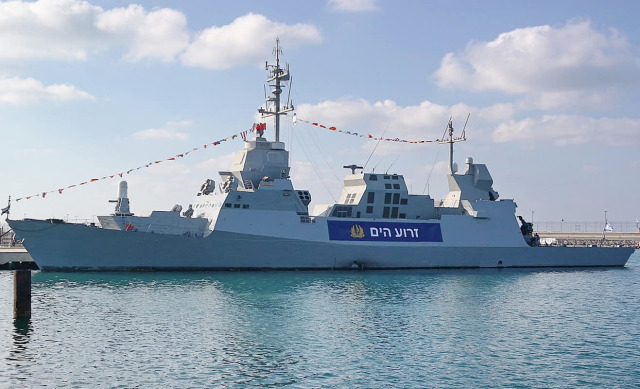
Saar-5 corvetteThe Navy has been criticized for not contributing enough to the 2006 Lebanon war.
Two days after it began, Hezbollah launched two C-802 anti-ship cruise missiles at an Israeli Saar-5 corvette, killing four crew members. The 2006 State Commission for the Investigation of Military Operations (the Vinograd Commission) concluded that the Navy acted on the basis of conducting police operations. This led to the crew members ignoring the deadly threat from Hezbollah.
In 2007, the Israel Defense Forces Navy assumed responsibility for securing the blockade of the Gaza Strip. The conflicts in Gaza and the constant attempts by militants to enter Israel by sea or break the blockade have required the Navy to play this growing role in day-to-day security operations. The Israeli Navy added another day-to-day task of protecting newly discovered offshore natural gas fields to its duties in 2011.
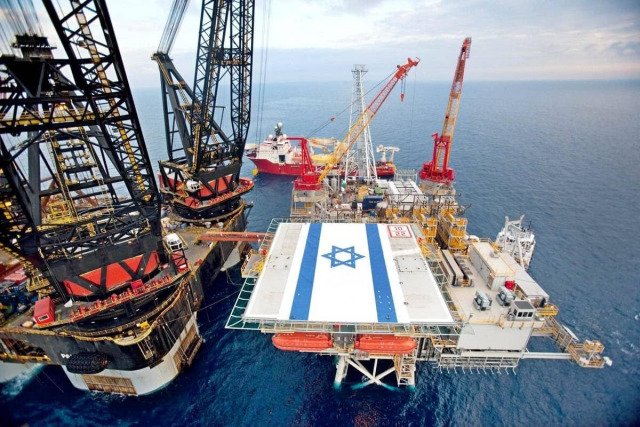
Israel's natural gas production in the MediterraneanIn the period from 2009 to 2012, Israel discovered several gas fields with natural gas reserves estimated at 680 billion cubic meters. As a result, Israel began to switch its electricity production infrastructure to the use of natural gas.
At the same time, it became obvious that a successful attack on these gas fields could jeopardize the energy security of the state. The Navy was tasked with providing multi-level protection of Israel's offshore energy infrastructure, including gas wells, platforms and underwater pipelines.
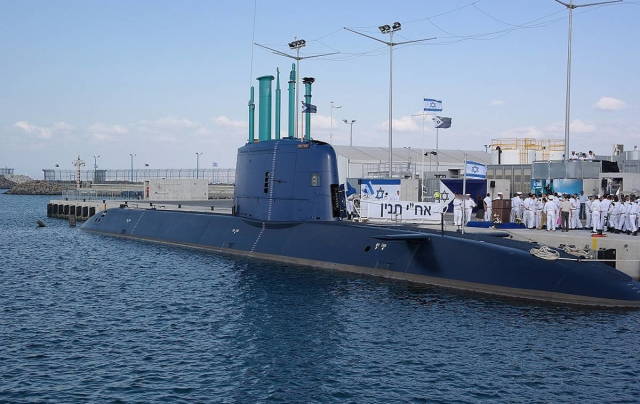
PL "Tannin" of the Israeli NavyIn 2011, Israel purchased 3 more submarines from Germany, doubling its submarine fleet to 6 ships.
At the same time, if the German manufacturer was responsible for the construction of the submarine hulls, then Israeli specialists were responsible for the combat systems and weapons installed on board. These include modern radar and communication systems, electronic warfare equipment, equipment for ensuring the actions and penetration of combat swimmers into hostile areas, as well as torpedo and missile weapons in conventional and nuclear equipment with a firing range of up to 1,500 km. [ Read more about the underwater forces of the Israel Defense Forces here ]
In connection with Iran's desire to create nuclear weapons, the IDF was instructed to prepare for two possible scenarios for solving Iranian nuclear ambitions. First, Israel strikes Iran's nuclear facilities. In this case, if Iran decides to strike back with other strategic weapons, Israel should be able to threaten Iran with a nuclear response. In the second scenario, Iran will develop nuclear weapons and threaten to use them against Israel. In that case, Israel would expand its deterrence to make sure Iran understands that an attack on Israel is likely to lead to mutual destruction.
To be continued…
Based on the materials of Naval War College ReviewRead the full text of the article now in our premium section https://boosty.to/invoeninfo
- Israel Defense Forces: reasons for reforms
- New IDF Combat Group ( infantry [...], armored troops, artillery )
- Israeli Air Force
- Israeli Navy
- Special Forces
- Intelligence Agency
- Cyber defense
- The transformed IDF and the risks of "self-strengthening"
